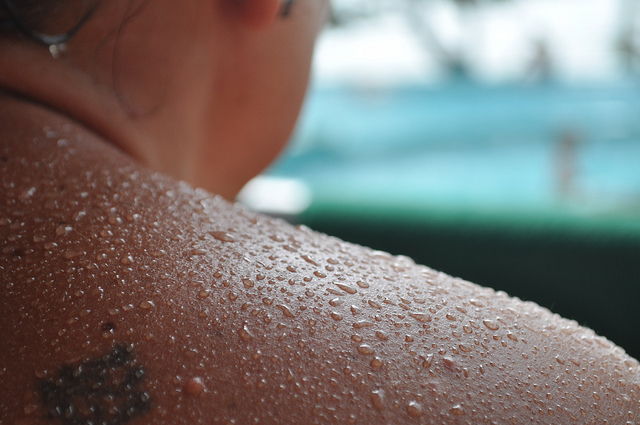WASHINGTON – Fun in the sun is taking on a new meaning. These days, summer means hotter weather, more mosquitoes and increased smog, an environmental group said Tuesday.
Climate change is exacerbating the annoyances of summer, the Natural Resources Defense Council said, and urged people to take extra precautions.
“With greater average temperatures, [climate change] is going to be an issue nationwide,” NRDC scientist Kim Knowlton said at a news conference. “When we talk about public health, then climate change becomes really personal.”
To prepare for these problems and reduce the number of heat-related incidents, the council has released a tip sheet to help people stay safe this summer.
Heat waves top the list of things Americans hate about summer, according to the NRDC, and they will only get worse. Knowlton cited the California heat wave in July 2006, which caused more than 100 deaths in the state.
Also on the list are ways to combat increased pollution, insects, poison ivy, pollen and food-borne illnesses, dangerous swimming conditions and degradation of national parks.
Susan Polan, associate executive director of the American Public Health Association, suggested wearing long-sleeved clothing to prevent ticks and mosquito bites, removing free-standing water where virus-carrying insects can breed and always staying hydrated.
But David Kreutzer, energy economics and climate change analyst for the Heritage Foundation, said the issue isn’t whether there are more heat waves and insects, but why climate-change efforts, like reducing carbon emissions, haven’t had any impact.
“I think we always have had ticks and mosquitoes. We’ve had them for a long, long time,” Kreutzer said. “The notion that they have somehow gotten worse is debatable in how much worse. How much would that change if we enacted any of the NRDC’s climate plans? The impact would not be happening any time soon.”
Though the NRDC emphasizes support for climate-change plans, like the U.S. Environmental Protection Agency’s Clean Power Plan to curb carbon emissions nationwide, Polan said Americans should focus on creating better warning systems to inform communities of bad-air alert days, dangerous swimming conditions or even tracking food-borne disease.
“We have bits and pieces of those put in place, but it’s not a comprehensive surveillance system,” Polan said.
She said people need to be more vigilant about keeping stockpiles of water and antibiotics in preparation for any weather changes.
“Soon summers won’t be a picnic for some of us,” Knowlton said. “We have the opportunity to take care of the people around us.”

